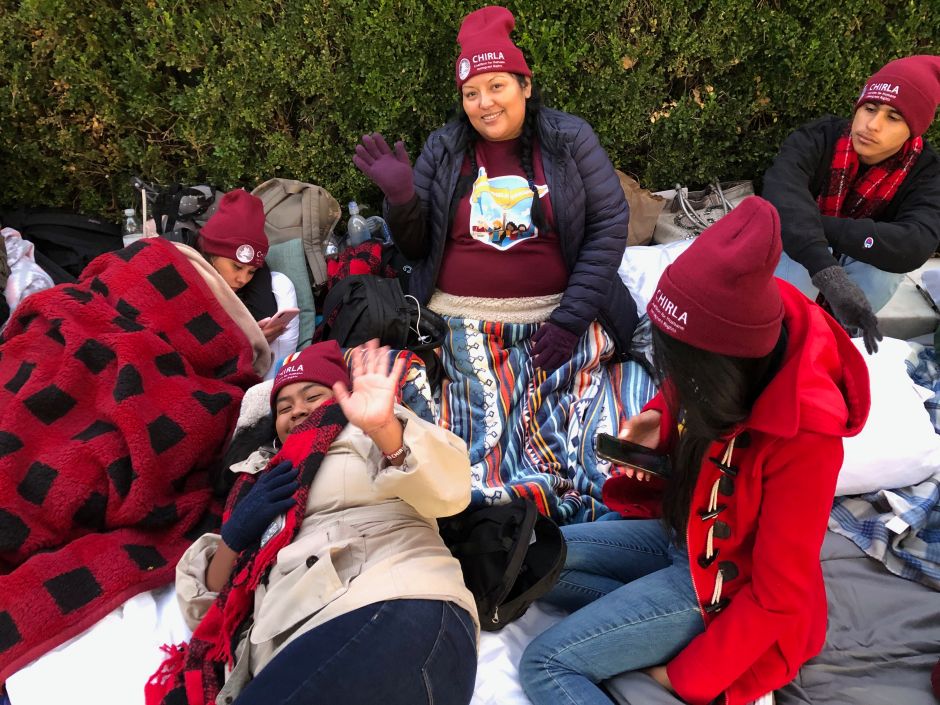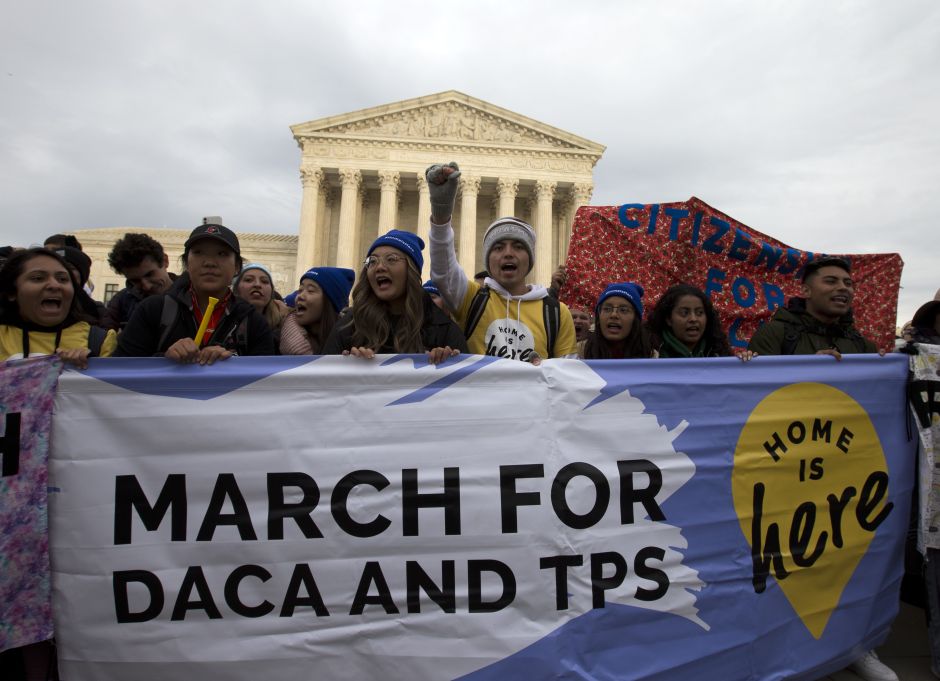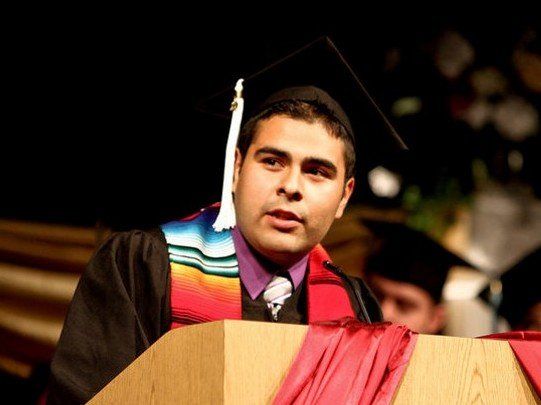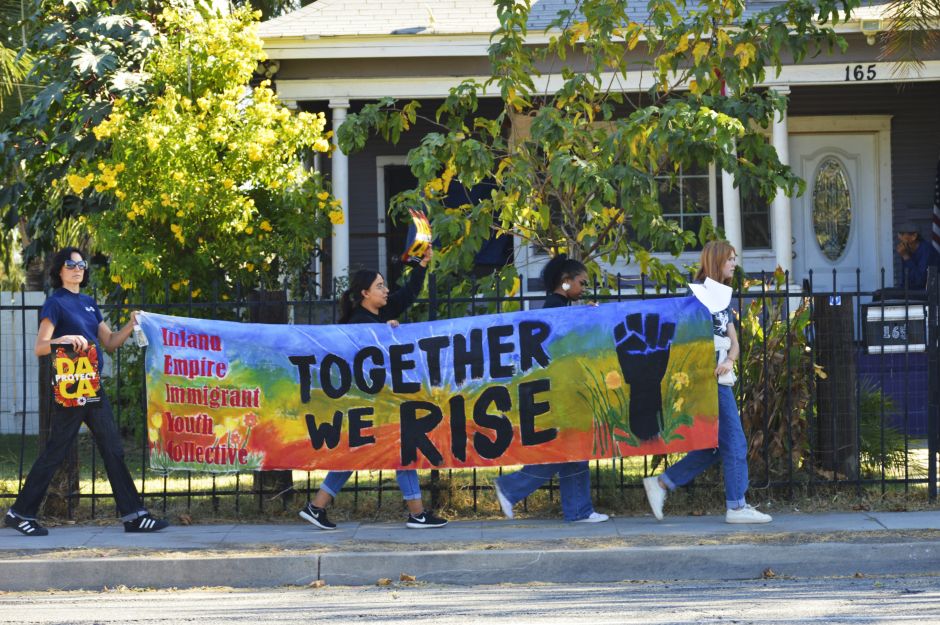Several courts have determined that the Trump administration's decision to end this program was illegal; but the last word has the highest court
Warmly sheltered, since Sunday, Maritza Gutiérrez Ramos, a young woman covered by Deferred Action for Childhood Arrivals (DACA), queues outside the California Supreme Court in Washington, D.C. in the hope of securing a place in the hearing where arguments will be heard for and against the legality of suspending this program that has served around 800,000 boys.
“It is a historic audience. Whatever happens, we will continue to fight and mobilize the community until we vote for immigration reform, ”says Maritza, who traveled from Los Angeles to Washington, DC, as part of the Coalition for the Rights of Immigrants (CHIRLA) fighting for the permanence of DACA and a path to residence and citizenship for DACAmentados.
Seven CHIRLA members joined hundreds of people in the 230-mile march which began on October 26 in New York and ended on November 10 in D.C.

Since 2012, DACA has avoided the deportation of young people who were brought by their parents to the US as children, and have given them a work permit.
Maritza slept two nights outside the Supreme Court, exposed to cold and rain.
“Access to the public is very limited as 30 people. That's why we arrived from Sunday to secure a place, ”she says lively.
“I have DACA thanks to the struggle of other people who have fought for us. So I am here today for me, for our families and the generations that come as young people who are in high school and have no DACA, ”he explains.
This day, the Supreme Court of the Nation will hear oral arguments to determine the legality of the cancellation of DACA. Since this program was eliminated by President Trump in September 2017, DACA has overcome numerous legal challenges, but today's hearing is a defining moment. Depending on the arguments, the Supreme Court will define between January and June if it was legal for President Trump to end DACA. That decision will define the fate of hundreds of thousands of young people and families.

“It is customary that in strong and large cases, the Court takes longer to take a ruling. So I estimate that we will not be seeing a final decision until May through June of next year, ”explains immigration lawyer Alex Gálvez, who made a special trip from Los Angeles to D.C. to witness the court hearing.
"How are the magistrates going to fail? … From that, we will get an idea tomorrow when we hear their questions, their concerns and which way they lean," he observes.
The lawyer explains that the Supreme Court has nine magistrates, five conservatives; and four liberals. “Five votes are needed in favor of President Trump's decision to eliminate DACA illegal. The hope is that Judge John G. Roberts appointed by former President Bush may be the vote of conservatives in favor of DACA. ”
The DACA defense is headed by veteran lawyer Theodore Olson, who was a general lawyer under the administration of President Bush, but Luis Cortés, an immigration lawyer benefited from DACA, a graduate of the University's law school, will also participate as an advocate from Idaho.
In an interview for CNN, Cortes said that much is at stake for him on Tuesday. “I will be in front of nine individuals who will ultimately decide if my clients will be deported and I will be deported with them,” said Luis, who grew up in San Francisco Bay; and his own father was deported to Mexico.

Luis recently renewed his DACA, and his work permit expires in 2021.
Several courts throughout the country have determined that the Trump Administration's decision to end the DACA program was illegal. But the last word will be the Supreme Court.
Luis Pérez, a CHIRLA lawyer, said in a recent interview with The opinion, They don't know what the impact of the Court's decision and the details would be. “If we win, we don't know if we will have the complete package, if they can renew DACA without problem, obtain permits to travel abroad (Advance Parole); and if the opportunity will be given so that those who turn 15 can also apply for this program; or if they would only allow us to continue renewing the DACA. And if we lose, we don't know what the deportation process will be, ”he said.
A study by the Center for Migration Studies in New York (CMS) revealed a day before the decisive hearing in the highest court in the country, showed the statistical profile of DACA beneficiaries and their contributions to the communities.
Approximately 88,000 DACA beneficiaries work in qualified professions, 88% speak well, very well or only English. The beneficiaries of DACA come from 158 countries.
In addition, the study reveals that 186,120 beneficiaries of DACA live in California, 76.14% are single, 37.68% are between 21 and 25 years old; and 40.51% have been in the country for 20 years or more.

Action Day
For this Tuesday, while the Supreme Court considers the case of DACA, in Los Angeles it is planned that at 10 am, about 500 students from at least ten high schools, including Garfield, Warren, Marschall, the Avance Academy and others, they will leave class.
At 11 a.m. There will be a demonstration in the federal building at the Molecule Man sculpture, located on Temple Street with 255 East of Los Angeles.
At 11:30 a.m. A program will be developed with testimonies of DACA beneficiaries and supporters of the cause in the same place.
At 12:15 noon a march will be held from the federal building to MacArthur Park. And between 3 pm and 8 pm a DACA concert will be held at the Levitt Pavilion.









